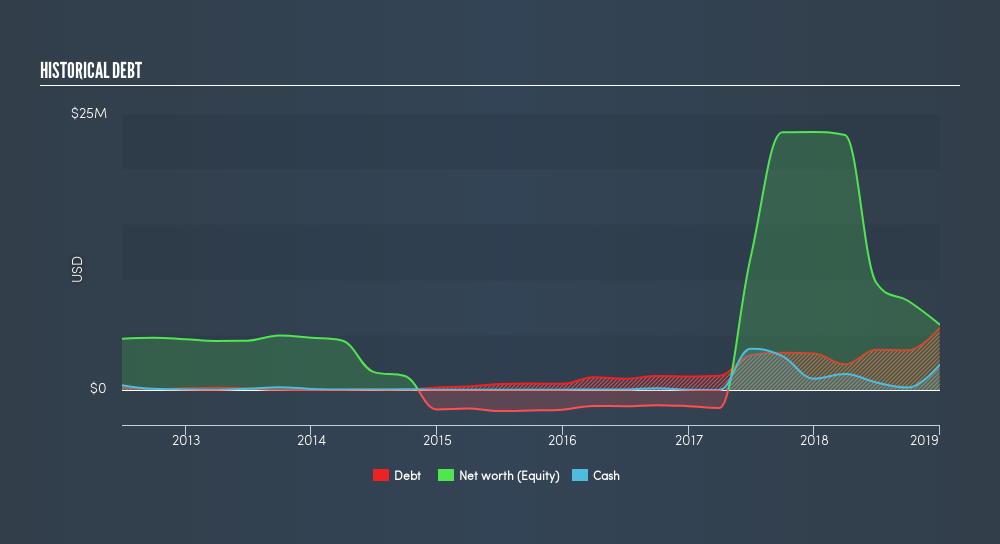
Kuuhubb Inc. (CVE:KUU) is a small-cap stock with a market capitalization of CA$40m. While investors primarily focus on the growth potential and competitive landscape of the small-cap companies, they end up ignoring a key aspect, which could be the biggest threat to its existence: its financial health. Why is it important? Since KUU is loss-making right now, it’s essential to understand the current state of its operations and pathway to profitability. The following basic checks can help you get a picture of the company's balance sheet strength. Nevertheless, this is not a comprehensive overview, so I suggest you dig deeper yourself into KUU here.
Does KUU Produce Much Cash Relative To Its Debt?
Over the past year, KUU has ramped up its debt from US$3.3m to US$5.6m – this includes long-term debt. With this increase in debt, KUU currently has US$2.3m remaining in cash and short-term investments , ready to be used for running the business. We note it produced negative cash flow over the last twelve months. As the purpose of this article is a high-level overview, I won’t be looking at this today, but you can take a look at some of KUU’s operating efficiency ratios such as ROA here.
Can KUU pay its short-term liabilities?
Looking at KUU’s US$3.5m in current liabilities, it appears that the company has been able to meet these commitments with a current assets level of US$4.3m, leading to a 1.23x current account ratio. The current ratio is the number you get when you divide current assets by current liabilities. For Entertainment companies, this ratio is within a sensible range since there is a bit of a cash buffer without leaving too much capital in a low-return environment.

Is KUU’s debt level acceptable?
With a debt-to-equity ratio of 94%, KUU can be considered as an above-average leveraged company. This is somewhat unusual for small-caps companies, since lenders are often hesitant to provide attractive interest rates to less-established businesses. However, since KUU is presently loss-making, sustainability of its current state of operations becomes a concern. Maintaining a high level of debt, while revenues are still below costs, can be dangerous as liquidity tends to dry up in unexpected downturns.
Next Steps:
Although KUU’s debt level is towards the higher end of the spectrum, its cash flow coverage seems adequate to meet obligations which means its debt is being efficiently utilised. This may mean this is an optimal capital structure for the business, given that it is also meeting its short-term commitment. Keep in mind I haven't considered other factors such as how KUU has been performing in the past. I suggest you continue to research Kuuhubb to get a better picture of the small-cap by looking at:
- Historical Performance: What has KUU's returns been like over the past? Go into more detail in the past track record analysis and take a look at the free visual representations of our analysis for more clarity.
- Other High-Performing Stocks: Are there other stocks that provide better prospects with proven track records? Explore our free list of these great stocks here.
We aim to bring you long-term focused research analysis driven by fundamental data. Note that our analysis may not factor in the latest price-sensitive company announcements or qualitative material.
If you spot an error that warrants correction, please contact the editor at editorial-team@simplywallst.com. This article by Simply Wall St is general in nature. It does not constitute a recommendation to buy or sell any stock, and does not take account of your objectives, or your financial situation. Simply Wall St has no position in the stocks mentioned. Thank you for reading.
About TSXV:KUU.H
Kuuhubb
Through its subsidiaries, acquires, develops, and distributes lifestyle and mobile games and applications.
Medium-low and slightly overvalued.
Similar Companies
Market Insights
Community Narratives



